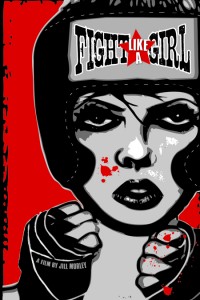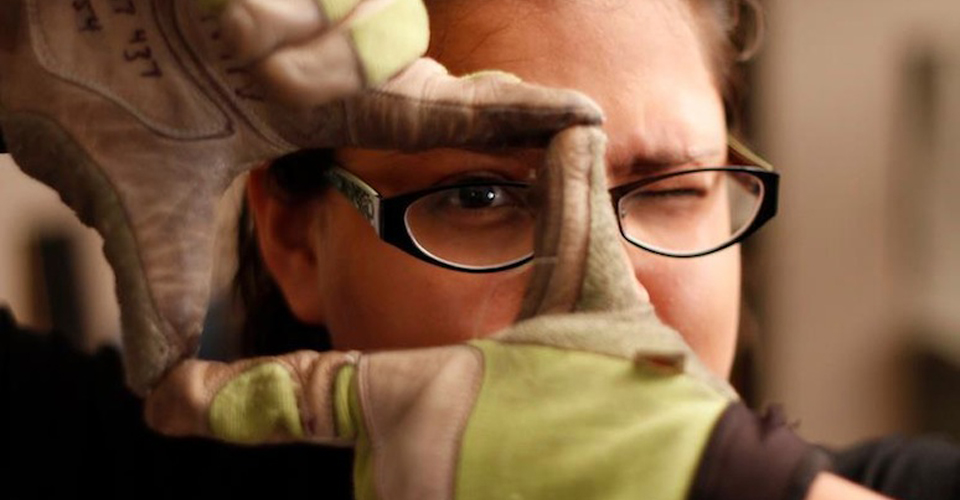
As an independent filmmaker and woman producer, I feel it’s important to not relegate this behavior on film sets exclusively to the big Hollywood machine and absolve ourselves as indie creators from responsibility. We must not settle into a false assumption that this same behavior doesn’t happen on small budget projects or that this abuse is exclusive to the rich and famous.
Instead, as independent creators, we can be LEADERS. Many of us have largely decided to create work outside of the studio system because we’ve noted this systemic behavior in the past and have wanted NOTHING to do with it. We can encourage our colleagues who are working in the industry to join us as we create a safe environment for everyone working in film and television — no matter the budget. I’ve spoken to several actors and independent director and producers and have compiled top tips for independent creators, producers, directors, actors and crew members.
- Audition Space Matters – Small budget projects struggle to access professional audition spaces because of the cost of such spaces. Directors may conduct auditions themselves and not with a casting professional. Holding auditions at one’s home, especially as a male director conducting auditions on your own or with other men working on the project with you, will immediately make many women coming to auditions feel very uncomfortable. This is too common and not acceptable. Use a professional location. Create a safe atmosphere for actors. In Los Angeles, CATZ is an affordable casting space. In the past, I’ve used a local theater. You can find a safe space at an affordable rate.
- Stay Away from One-On-One Settings -Monica West, the lead actress of the award-winning web-series Best Thing You’ll Ever Do (pictured below with the director of Consommé) had this advice: “Never meet a male director alone after a rehearsal.” The same goes for women HMU, producer, costume designers, etc. One-on-one meeting raise red flags. Directors, if you need to meet with one actor, include other team members as well, such as a woman producer. The beauty of filmmaking is collaboration, so be collaborative. Engage your team in a safe way that respects everyone’s needs.
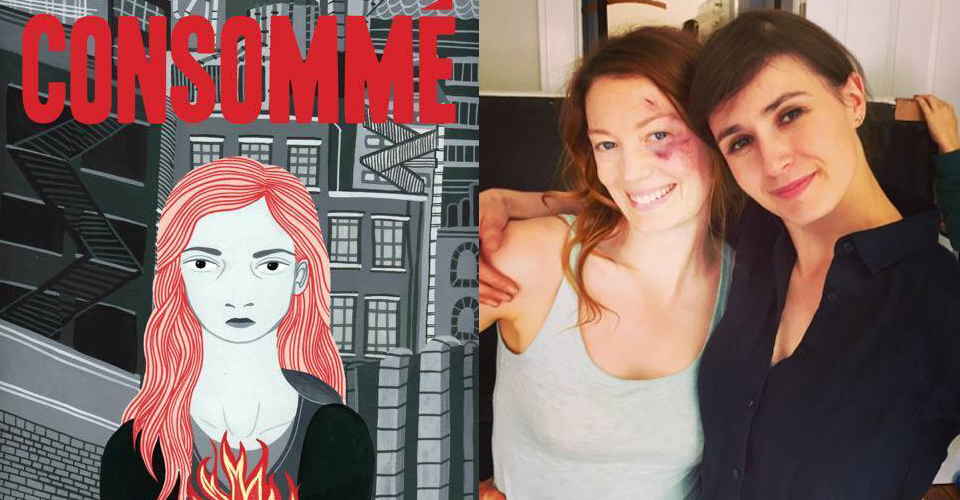
- Know Where to NOT Cut Corners – On independent films, the budget is often very tight. You may be investing your own funds. Saving money at the expense of the safety of your cast and crew is NOT okay. Be prepared to pay actors for additional rehearsals for scenes that are sensitive or to bring in professionals to choreograph certain scenes. Make those financial commitments. It will benefit the film. We all do our best work when we feel respected, supported and safe!
- Set the Tone on Your Set – Make it clear that your set is one in which there will be zero tolerance for sexual harassment. Indie producers, be the leaders. Amy Hoff (Caledonia, Burns Night, Ghost Sickness) states: “I take full responsibility on my sets to make sure nothing weird is going on. Anybody starts acting like that, they are gone. I think people in general need to be more willing to call things out and have a zero tolerance policy.” If your film includes a scene depicting sexual misconduct and/or assault or a scene of intimacy between actors, award-winning director Catherine Fordham (Consommé and Best Thing You’ll Ever Do) suggests creating “an atmosphere of respect for the material and for the actors who have to go through these things.” Joking about assault is not appropriate and doesn’t “lighten the mood.”
- Speak up; Listen; and Believe Others When They Speak Up – Pay attention to what is going on around you; don’t let something slide, no matter who you are on set or who the perpetrator is. “If you aren’t the person doing the harassing or discriminating but know about it or see it happening you should speak up,” states award-winning indie director Frederick Taylor (Counter Histories: Rock Hill, Trans-Mission.love). “The real men must screw the boys club mentality. Men, be brave and support someone else who is being brave. Don’t condone insult and injury.”
- HIRE WOMEN – “Hiring women in positions of authority has been immensely helpful,” states Monica West (pictured below).” Our last couple of projects have been produced by women who set the tone for mutual respect on set.” There are talented women working at every level of the film industry and in every position. Find them, hire them, empower their voices and leadership. Women in Media is a great resource as is Hire a Ms.
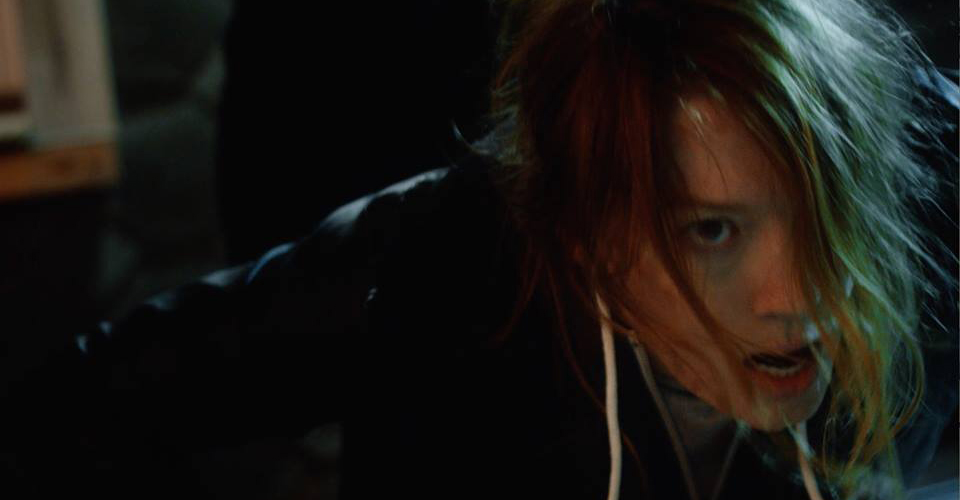
- Be Mindful When Shooting “Delicate Scenes” – I was really impressed when I spoke with Catherine Fordham and Monica West about Consommé, a film that depicts an attack on a woman. Fordham created a safe environment for her team. She stressed the importance of rehearsals for scenes like this and of taking the time to build trust between actors. She hired a credible fight choreographer/specialist, Zelda Gay. She focused on building trust between actors. “I was able to understand his energy and know that I could trust him,” stated West, the actress in the scene. Fordham insisted on quiet before and after the scene to allow the actors to enter and exit this type of emotional and physical experience.
- Don’t Be Afraid to “Trim the Trees” – In my experience a smaller, trustworthy crew is often better than a larger crew with people you don’t know well. This can also free funds for other things, like rehearsals, choreographers, etc.
- If You Have Power, Use It For Good – Award-winning independent director Iram Parveen Bilal (The PHD Movie, Josh, Extinction) had this important advice for directors, especially women directors: “Own your power as a director and do not let ANYTHING crowd your creative space on set.” When other women on set see a female director owning her power, it empowers them as well. Another woman in the industry underscored this as well: “I threatened to quit a show once when I saw the “producer” harassing a producer’s assistant. I said you may be able to afford to lose her but you can’t afford to lose me and that’s what’s gonna happen if you don’t stop.”
- Start at the Beginning – Yes, as indie creators, we’re always scrambling for money and struggling to raise funds for our projects. But compromise and intimidation by men in power can begin at this funding phase and women creators often find themselves in precarious situations as they seek funds and reach out to investors. “With a decade of pitching and working on set behind me,” stresses Iram Parveen Bilal, “I’ve realized something that is common knowledge: listen to your instincts and say no to money that comes from bad energy. I’m still looking for finishing funds for a celebrated project, and I know the desperation of finding finance, but we have walked away from pursuing two heavy weight investors because their intentions and energy seemed misplaced.”
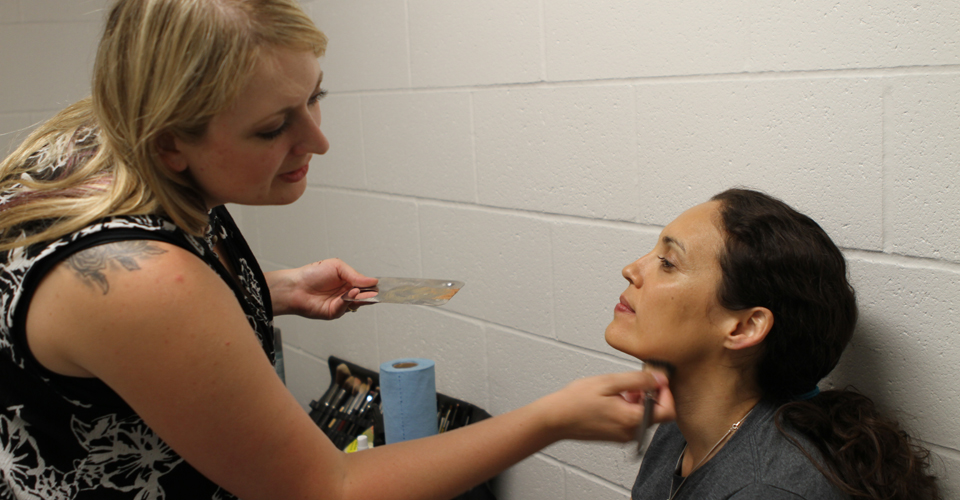
- Create a Statement of Shared Values – Angie Gaffney shared this great piece on Medium: Public Harassment, Blatant Sexism: A Public Reaction and in it she mentions working to draft a statement of shared values that everyone in the Chicago Film Community (her film community) could adopt and pledge to support.This is a wonderful idea for indie film communities throughout the country.
For the men reading this article, Frederick Taylor wanted to share these man to man words with his male colleagues: “We, as men, must work harder and have a deeper sensitivity. We must be on our best behavior…We must treat all people as humans. Filmmakers can’t use power to bully, intimidate or get their way.”
Indie creators — you are on notice. We, as an indie community, can do better. We can be the leaders in creating safe, respectful work spaces for everyone on set. For large productions already infiltrated by Hollywood’s standard way of doing business, which includes bullying, intimidation, and coercion, it’s a very big ship to turn around. For us, it’s not. Let’s create the change we want to see in the larger industry. Let’s deprive those who do not operate with respect and positive intentions of our talent and resources. Let’s build indie communities that do it differently, that do it better, that lead with respect.
For additional resources and reading on this topic, check out Women and Hollywood’s Round-Up of the Latest Writings on Hollywood’s Rape Culture.
Another important resource is this article from LA Weekly regarding the depiction of rape scenes on screen and how it affects cast and crew.

MS. JENNIFER FISCHER, Co-Founder, Think Ten Media Group, Writer, Producer, Arts Educator




